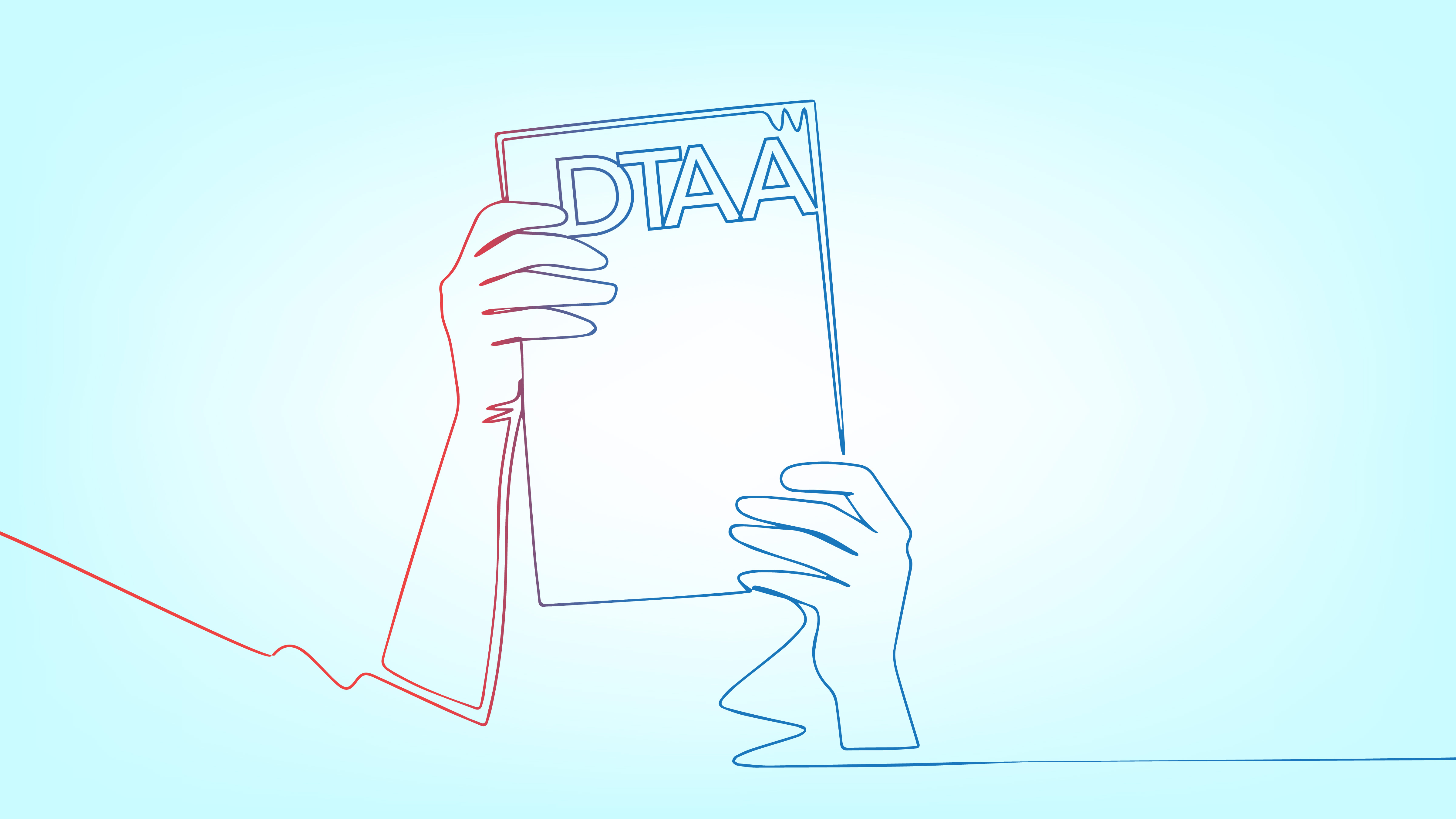Understand Double Taxation Avoidance Agreement (DTAA)

Understanding the Double Taxation Avoidance Agreement (DTAA)
Globalisation has led to a significant increase in individuals and businesses earning income across multiple countries. While this opens up economic opportunities, it also raises concerns about double taxation. The Double Taxation Avoidance Agreement (DTAA) addresses this challenge by ensuring taxpayers are not taxed twice on the same income in different jurisdictions.
What is Double Taxation Avoidance Agreement (DTAA)?
The DTAA full form is Double Taxation Avoidance Agreement. It is a treaty between two or more countries to avoid the double taxation of the same income. Double tax avoidance ensures that taxpayers do not face excessive tax burdens.
For example, if an NRI (Non-Resident Indian) earns income in India and resides in the US, both countries might tax the same income. The agreement to avoid double taxation ensures income is taxed only once, either in India or the US, or taxed at a reduced rate.
The DTAA meaning extends to promoting international trade, investment, and economic cooperation. By reducing tax liability, the avoidance of double taxation fosters cross-border transactions and encourages global economic activity.
Key Features of the Double Taxation Avoidance Agreement
The agreement for the avoidance of double taxation includes the following key features:
-
Taxation Scope: Covers various income sources like salary, dividends, interest, royalties, and capital gains. For instance, income from Indian investments or foreign remittances may qualify under the DTAA, depending on the nature of the income and the treaty provisions.
-
Relief Methods:
- Exemption Method: Income is taxed in only one country, eliminating duplicate taxation entirely.
- Credit Method: Taxes paid in the source country can be claimed as a credit in the resident country, reducing the overall tax burden.
-
Tax Residency: Taxpayers need a Tax Residency Certificate (TRC) from their resident country to avail of DTAA benefits. This document proves the taxpayer's residency status and is critical for claiming exemptions or credits.
-
Special Rates: Lower withholding tax rates apply to specific incomes under the double tax avoidance agreement, such as reduced rates on dividends or royalties, which can vary by country.
-
Legal Certainty: Clear guidelines reduce disputes and provide transparency in international taxation.
How DTAA Works: A Step-by-Step Guide
Understanding how DTAA operates can help taxpayers leverage its benefits effectively. The agreement provides mechanisms and provisions to ensure fair taxation and avoid double taxation.
Mechanisms to Avoid Double Taxation
-
Identify Residency Status:
Determine if you are an NRI or resident based on income and duration of stay in India. NRIs are taxed only on income earned or received in India, as outlined in DTAA meaning. -
Check Taxable Income:
Income types covered include salaries, business profits, capital gains, and dividends. NRIs earning in India but residing abroad must check if their income qualifies under the DTAA. -
Relief Methods:
Exemption: Income taxed in one country is exempt in another. Credit: Taxes paid in the source country can be credited against the tax liability in the resident country.
DTAA Clauses and Provisions
DTAA clauses provide specific rules and guidelines for NRIs and expats. These provisions clarify tax treatment for various income types. The agreement double taxation includes provisions like:
-
Dependent Personal Services: Income earned abroad while working for an Indian company may be exempt under certain DTAAs.
-
Capital Gains: Tax on gains from investments in India may be reduced or exempt based on the DTAA with the source country.
-
Interest Income: Lower withholding tax rates apply to interest earned in India by NRIs.
DTAA Benefits for NRIs and Expats
The double tax avoidance agreement offers several advantages:
- Tax Credits:
Taxes paid in India can be claimed as credits in the resident country. Example: Capital gains tax paid in India can offset US federal tax liabilities. - Lower Tax Rates:
Income like interest, dividends, or royalties is taxed at reduced rates under DTAA provisions. Example: NRIs in Canada may pay only 15% tax on Indian interest income instead of the regular rate. - Encourages Investments:
Reduced tax burdens encourage NRIs and businesses to invest in India, boosting economic growth.
How to Claim DTAA Benefits?
Claiming DTAA benefits involves these steps:
- Obtain TRC:
Apply for a Tax Residency Certificate in the resident country. Example: A US-based NRI can obtain a TRC from the IRS. - Submit Form 10F:
File Form 10F electronically via India’s income tax e-filing portal.
Include details like nationality, tax residency, and tax identification number. Additionally, non- residents must have a Digital Signature Certificate (DSC) when submitting the form.
- Provide Supporting Documents:
PAN card copy, proof of income, and declarations are required. - File Taxes:
Claim tax relief or credit while filing income tax returns in India and the resident country.
List of Countries Having Double Taxation Avoidance
Agreement Treaty India has signed DTAA treaties with over 90 countries, including:
- USA: Allows lower tax rates on interest and capital gains.
- UK: Includes provisions for exemptions and reduced tax rates.
- Canada: NRIs can claim special rates on interest and dividends.
- Australia, Singapore, UAE: Encourage economic cooperation by reducing tax burdens.
For a complete list of countries and DTAA provisions, visit the Indian Income Tax Department’s official portal.
Summing Up Double Taxation Avoidance Agreement
The Double Taxation Avoidance Agreement is a vital tool for NRIs and expats. By understanding what is DTAA and leveraging its provisions, taxpayers can save money and encourage global economic participation. From obtaining a TRC to filing Form 10F, compliance can help reap the benefits of the agreement to avoid double taxation. It’s advisable to consult tax experts for a seamless experience and to stay updated on country-specific DTAA clauses.
Author
Editorial Team of HDFC Life International
Disclaimer:
The information provided in this blog is intended for general informational purposes only. HDFC International Life and Re Company Limited, is committed to delivering accurate and up-to-date content, but we do not guarantee the completeness or accuracy of the information. The content on this blog is not meant as professional advice and should not be considered a substitute for consulting with a qualified expert in the field of insurance or financial planning and advisory matters. Decisions based on the information in this article are solely at the reader's discretion.
We may occasionally include external links to third-party websites for additional information. HDFC International Life and Re Company Limited does not endorse or have any control over the content of these external websites and is not responsible for their accuracy, reliability, or compliance with legal regulations. While we strive to offer valuable insights and guidance, the information in this blog is subject to change without notice, and we make no representations or warranties of any kind, express or implied, about the accuracy, reliability, suitability, or availability of the information provided.
By using this blog, you agree that HDFC International Life and Re Company Limited and its authors will not be held liable for any direct, indirect, or consequential damages arising from the use of the information contained here. We recommend consulting with a qualified professional for specific advice related to your unique situation.
Recommended blogs

Stay in touch
Subscribe to our newsletter and stay updated.
Related posts
23 Jan 2026|5 min read
23 Jan 2026|5 min read
21 Jan 2026|6 min read
HDFC International Life and Re Company Limited, IFSC Branch
FCRN: F06803 & IFSCA Registration No.: IFSCA/IIO/006/2022-23(Regulated by the IFSCA)
Registered Branch Office and Address for Correspondence: Office No. 213, Hiranandani Signature, Second Floor, Block 13B, Zone - 1, GIFT SEZ, Gift City, IFSC, Gandhinagar, Gujarat, India - 382050.
The registered marks including the name/letters "HDFC" in the name/logo of the Company/branch belongs to HDFC Bank Limited ("HDFC Bank") and the name/letters "HDFC Life" is used by HDFC Life Insurance Company Limited ("HDFC Life") and its subsidiary, HDFC International Life and Re Company Limited under a licence/agreement between HDFC Bank and HDFC Life.
For more details on risk factors, associated terms and conditions and exclusions please read sales brochure carefully before concluding a sale.
PLEASE EXERCISE CAUTION REGARDING DECEPTIVE PHONE CALLS AND FRAUDULENT OFFERS.


